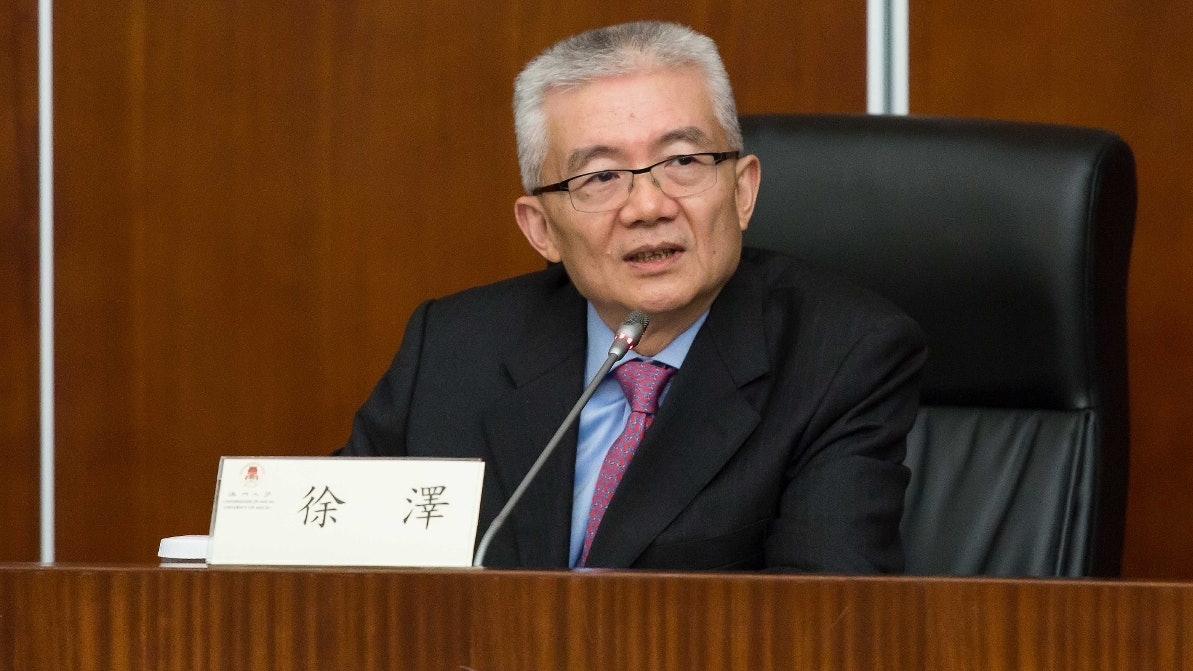On the eve of the 25th anniversary of Hong Kong's return to the motherland, Xu Ze, former deputy director of the Hong Kong and Macau Affairs Office of the State Council, said that Hong Kong and Hong Kong's understanding of the country's identity and the special administrative region's constitutional order is not yet in place, and there are gaps in understanding. In the future, laws that violate the Basic Law must be cleaned up. Improve the system, system and mechanism for implementing the Basic Law.
Hong Kong media "Sing Tao Daily" reported that Xu Ze said that the Basic Law stipulates that the original laws of Hong Kong shall be retained except those that conflict with the Basic Law or have been amended by the SAR legislature.
Before the return of Hong Kong, the Standing Committee of the National People's Congress made a special decision to deal with the original laws, listing the repealed laws and some clauses.
The Basic Law also stipulates that if the original laws adopted as the laws of the SAR are later found to be inconsistent with the Basic Law, they may be amended or ceased to take effect.
He pointed to the fact that the work of cleaning up the old laws was not over.
After the promulgation of the Basic Law, Hong Kong entered a post-transition period. The British side implemented the retreat plan of "returning power to the people", amended the constitutional law, introduced the Bill of Rights Ordinance, and based on this law, revised a large number of issues related to social management, government The operation of the law, the original law defined by the Basic Law has undergone great changes.
Hundreds of lawyers and representatives of the legal profession staged a silent march in black in Central on June 27, 2014, from the High Court to the Court of Final Appeal.
They called on Beijing to withdraw part of the State Council's June 10 release of a white paper titled "The Practice of "One Country, Two Systems" in the Hong Kong Special Administrative Region, which said Hong Kong judges need to be patriotic.
He criticized that the final judgment formed by the Hong Kong High Court on the basis of the Bill of Rights Ordinance before the handover resulted in errors that were not based on the Basic Law, but on the basis of the Bill of Rights Ordinance, which affected the final judgment made by the SAR courts after the handover. The Basic Law stipulates that the systems and policies to be implemented in the SAR must be based on the Basic Law, which has not been fully implemented.
He said, "Whether these changes are in line with the Basic Law may be difficult to judge at the time, but after more than 20 years of practice, what obstacles did the governance of Hong Kong encounter due to these changes in laws? ’, it shouldn’t be difficult to find, should it be cleaned up seriously?”.
He believes that the fundamental purpose of "one country, two systems" and the Basic Law is to safeguard national sovereignty, security and development interests, and to maintain Hong Kong's long-term prosperity and stability.
"One country, two systems" must be based on "one country", and resisting national identity means not "one country, two systems".
The national identity is to uphold China's consistent sovereignty over Hong Kong, to sincerely support the motherland's resumption of the exercise of sovereignty over Hong Kong, and not to recognize the three unequal treaties.
He concluded that the core of the SAR's constitutional order and system is to implement the relationship between the central government and the SAR under the principle of "one country, two systems".
The overall governance power of the central government originates from the Constitution and the Basic Law. The Constitution and the Basic Law together constitute the constitutional basis of the special administrative region, and the constitutional order of the special administrative region is formed on this basis. As the authorized special administrative region, it must be accountable to the center that made the authorization. This is the system implemented in the special administrative region.
This system has been implemented since the return of Hong Kong.
He concluded that the overall governance of the central government includes the direct exercise of power by the central government and a high degree of autonomy granted to the SAR.
There are two reasons for the misunderstanding of this concept and this system: first, the explanation of the system, education and learning are not in place, and there are absent classes; The misinterpretation of it misleads people and causes confusion.
Therefore, it is necessary to quickly make up lessons, clear the source of the original, and put things right.
The 25th anniversary of the return of China | Xi Jinping left the mainland for the first time after the epidemic and arrived in Hong Kong, emphasizing that one country, two systems is a good system. The 25th anniversary of the return Opening a new chapter and reaching a consensus on the 25th anniversary of the return of China|Ensuring the safety of Xi Jinping’s visit to Hong Kong, the 25th anniversary of the no-fly drones in Shenzhen and Hong Kong







